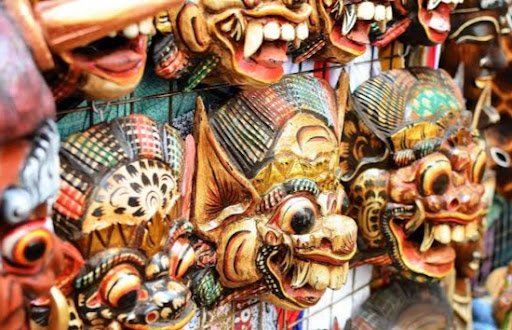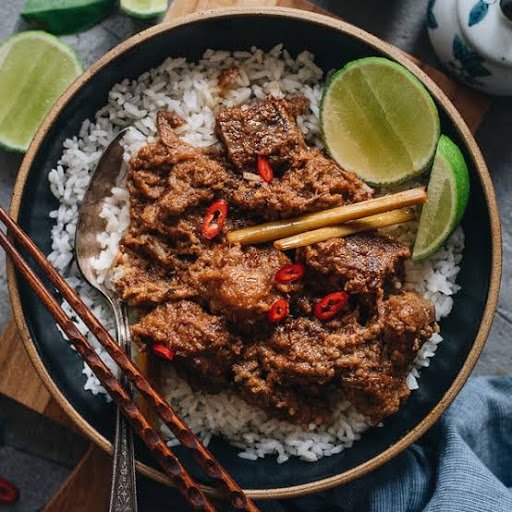Indonesian Mask
Cultural exchange is simply sharing aspects of your culture with someone from a different background than you and vice versa. Why does cultural exchange matter? Cultural exchange emphasizes the importance of similarities over differences. We can see that we are more similar than different by going out, talking to, and connecting with others. We share the same universal human values that make us laugh and cry.
The cultural exchange also highlights the beauty of diversity. Although we can see our similarities more clearly, this does not mean our uniqueness is lost. Rather, through cultural exchange, we can celebrate our differences and use our knowledge of one another's cultures to become more effective global leaders in the future.
Furthermore, Cultural exchange improves and connects the world for everyone. We can better understand one another if we recognize the intrinsic value that each member of our global community possesses.
We can effect meaningful change if we better understand one another. The Youth Cafe believes culture, arts, and sports can change the world; it is a key component in the fight against extremism and promoting peace and unity. Invest in socio-economic stability, support youth talent through cultural entrepreneurship, and help transform Africa.
In regards to this, The Youth Cafe, in partnership with the Indonesia Youth Foundation, held a 3-day Kenya & Indonesia virtual Trans-cultural workshop; “Buddies Without Borders: Amplifying Cultures & Promoting Diversity,” objectified to Promote cultures and heritages of Indonesia and Kenya, Build mutual understanding and tolerance between Indonesian and Kenyan youths, Bridge overseas friendship and networking, Explore new cultural facets from the two countries (such as language, food, traditions, art, and fashion) and deepen the intercultural connection as well as Flourish diversity cross-cultural skills in a globalized world.
The event was a collaborative effort between The Youth Cafe (TYC) and Indonesia Youth Foundation (IYF), whose focus was on bridging the gap between cultures from different parts of the world by showcasing cultural diversity and building social connections between young people from Kenya and Indonesia.
In the spirit of amplifying cultures, the event showcased Indonesia and Kenyan cultures through Food, Language, Fashion, Traditional Music, Art, and Folklore. In attendance was The Youth Cafe Executive Director, Mr. Willice Onyango, and Ms. Ratu Lala Syaila Fikria, Special Staff at Asian-African Youth Government and Founder of Advokat Konstitusi. This platform focuses on current legal issues.
The 3-day event was organized in three categories, with day one being introductory with speeches from Mr. Willice Onyango and Ms. Ratu Syaila on how to promote culture in different backgrounds and how to establish good relationships with people from different backgrounds, where participants took part in a Question and Answer Question with the speakers.
The Indonesian participants were interested in learning more about Kenya, especially how to learn Swahili, while the Kenyan participants were interested in visiting Indonesia for business and touristic ventures. Ms. Ratu informed the participants that the Asian-African Youth Government organization was in charge of bridging the gap between Asian and African youths and providing opportunities for culture and arts.
Day 1 of the event was also characterized by a game session, Drawbattle, with the participants where were grouped into two teams and competing in a drawing and guessing game which highly motivated the participants.
Day 2 of the event was the most engaging as it embodied what the theme was about, ‘buddies without borders,’ where the participants were categorized into four panels under the Food, Art, and Clothing, Language, Traditional Music, and folklore groups. Each panel consisted of both Indonesian and Kenyan participants and facilitators.
The Youth Cafés staff, including Samantha Saru, Julie Jepkemboi, Godwin Akwomi, Candy Akombo, Kennedy Kimanzi, Joseph Mutunga, and Anne Musyimi, were present the capacity of Facilitator, MC, Moderator, and participant, respectively.
During the day two event, the participants were taken through a Get to Know session where the facilitators introduced the participants to each other and led discussions on culture based on the specific panel description. After the discussions, participants in the four panels were tasked with creating their own presentations based on the discussion.
Panel members consisted of ten members, five from Kenya and five from Indonesia. Participants discussed topics related to their panel, where there was a lot of information sharing and fun discussions. The presentations made after the discussions were to be shared on the third day of the event.
Panel 1: Food: This category dealt with the different types of cuisines, favorite and most common dishes in Kenya and Indonesia. The group also discussed the similarities and differences between the foods, food traditions, and the existence of food festivals, if any.
The most common Kenyan dish was found to be Ugali, Nyama Choma, rice, and meat stew whilst the Indonesian one was found to be pendang which is a spicy, meaty stew taken with rice. Both countries have rice as a common food which marks a similarity.
Kenyan food.
Indonesian Food.
Panel 2: Language: This category dealt with learning about the national languages of the two countries, namely, Swahili in Kenya and Bahasa Indonesian in Indonesia. Participants learned how to greet each other in their respective languages and also name a few objects and verbs.
Panel 3: Art and Clothes: Under this category, the main focus was on traditional artistic crafts and traditional fashion, where traditional art and clothes were showcased through pictorial and video presentations. Participants discussed the symbolism behind some artistic crafts like masks, fly whisks, animal figurines, and traditional clothing materials, including the types of clothes worn in various ceremonies and festivals.
Indonesian Batik
Panel 4: Traditional Music and Folklore: This category sought to showcase the various traditional music and folk tales from the many Kenyan and Indonesian cultures, similarities, and differences between the two.
In the Kenyan category, traditional Luo, Giriama, and Taita music were presented whilst the Indonesian category had the kendang, gamelan, and keroncong. Also presented were the different types of musical instruments from Kenya being, the nyatiti, and the Indonesian gong chime.
Sasando
The Get to Know sessions were followed by the Gather town session, where participants were taken through the Gather town platform, which is an online space that facilitates virtual human interactions and possesses a customizable space that provides a more natural environment for work and social interactions.
The Gather town was designed with four different spaces; that is language, food, traditions, and art spaces containing various content, including videos, photos, articles, etc that allowed the participants to learn more about each other’s cultures.
The participants were able to navigate the spaces to view cultural materials on types of food and recipes, clothing materials and attires, learning Bahasa Indonesian and Swahili, and traditional music and folklore from Kenya and Indonesia, which were embedded as household items and objects on the Gather town virtual space. The participants experienced a never before seen virtual tour, which provided an apt visual representation of the cultural diversity the event was rooting for.
Day 3 and the final day of the workshop involved participants from the four panels showcasing what they had learned from the group discussions and presentations on the second day of the event.
They came up with their own traditional presentations on food, cuisine, language, fashion, music, art, and folklore, which was a testament to how impactful the exchanges had been. The art and clothing panel emerged as winners for their visually stimulating presentation in an awarding session.
The Youth Café works with young men and women around Africa as a trailblazer in advancing youth-led approaches toward achieving sustainable development, social equity, innovative solutions, community resilience, and transformative change.








